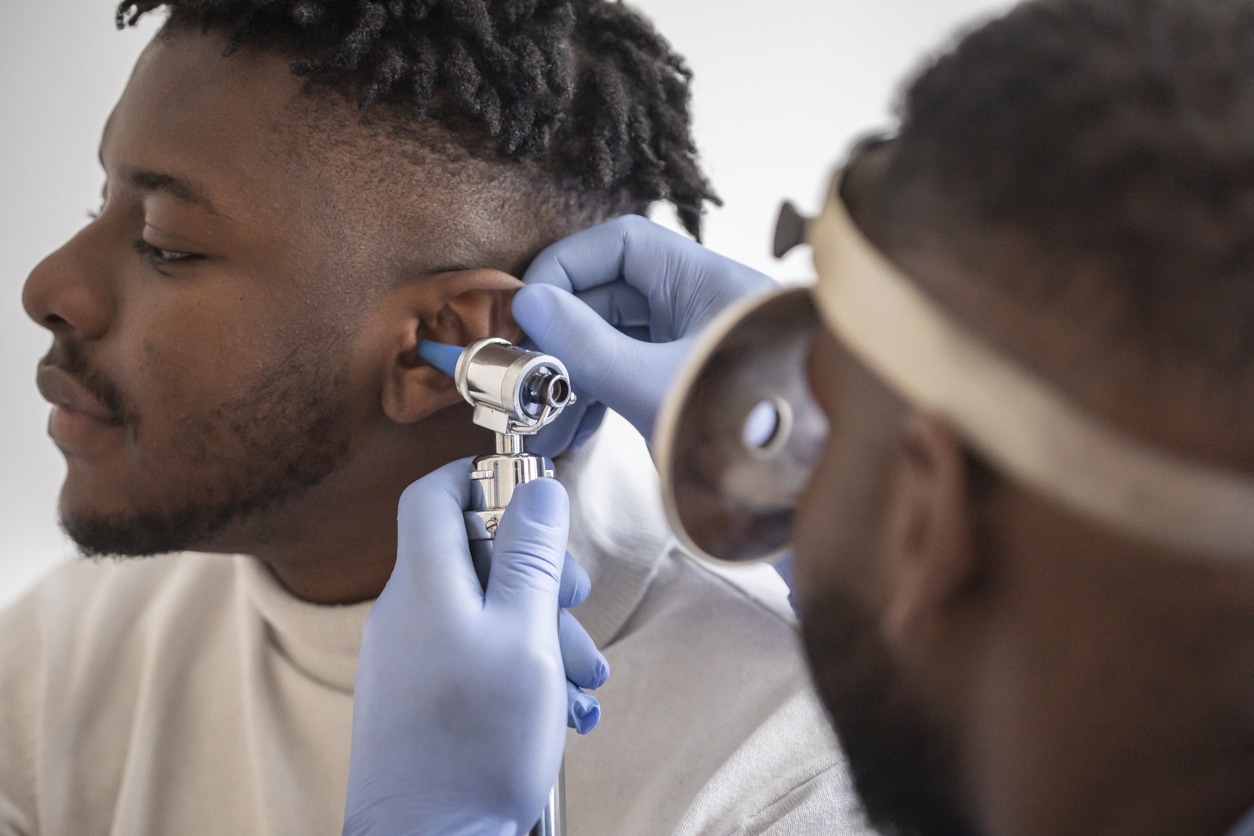Tinnitus, the perception of ringing or buzzing in the ears with no external source, affects approximately 50 million people in the United States. While not a disease itself, tinnitus often appears as a symptom of other conditions. One frequent cause of this internal ringing is earwax buildup or impaction.
Let’s explore the connection between earwax buildup and tinnitus and what you can do to treat it.
Why Does Earwax Build Up?

Earwax, or cerumen, is a natural substance produced by the glands in your ears. In most cases, your ears naturally dispose of wax regularly. However, blockages can occasionally occur due to dry or hard wax, excess ear hair, narrow ear canals, or frequent use of earplugs, cotton swabs or hearing aids. In addition to tinnitus, a few common signs of earwax blockages to look out for include a feeling of fullness in the ear, pain, hearing loss, itchiness and dizziness.
How Does Earwax Buildup Lead to Tinnitus?
When impacted earwax blocks the path of sound through the ear, your auditory system may compensate by producing its own noise in the form of tinnitus. Luckily, earwax-induced tinnitus is rarely permanent and will likely go away once the wax is removed.
How To Remove Earwax Safely
If you suspect impacted earwax is leading to your tinnitus symptoms, schedule an appointment with your provider for an exam. After diagnosis, your provider may recommend one of the following two solutions:
- Professional removal. With a professional removal, your provider will use special instruments, suction, irrigation or a combination of the three to remove excess earwax.
- Ear drops. Over-the-counter or prescription eardrops soften wax, making it easier to remove with suction.
When seeking earwax removal, it is essential to avoid placing small objects like cotton swabs or hairpins in your ears, as these methods can result in eardrum perforation. If you produce excess earwax, you may need to schedule more frequent professional cleanings or regularly use at-home ear drops.
By understanding the relationship between earwax and tinnitus, you can take steps to manage and treat your symptoms. To learn more about caring for your ear and hearing health, contact Certified Hearing Aid Consultants today to make an appointment with one of our specialists.